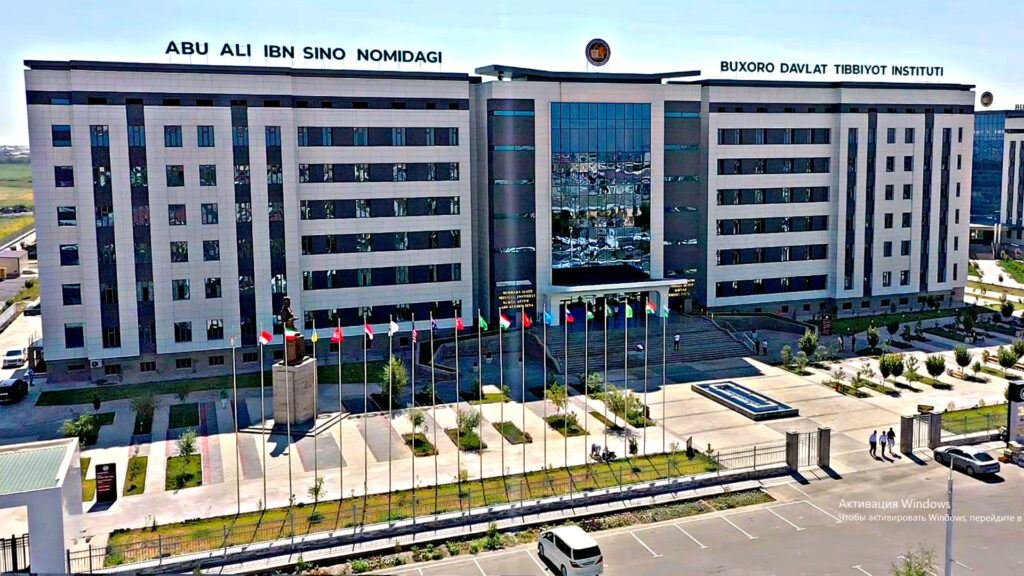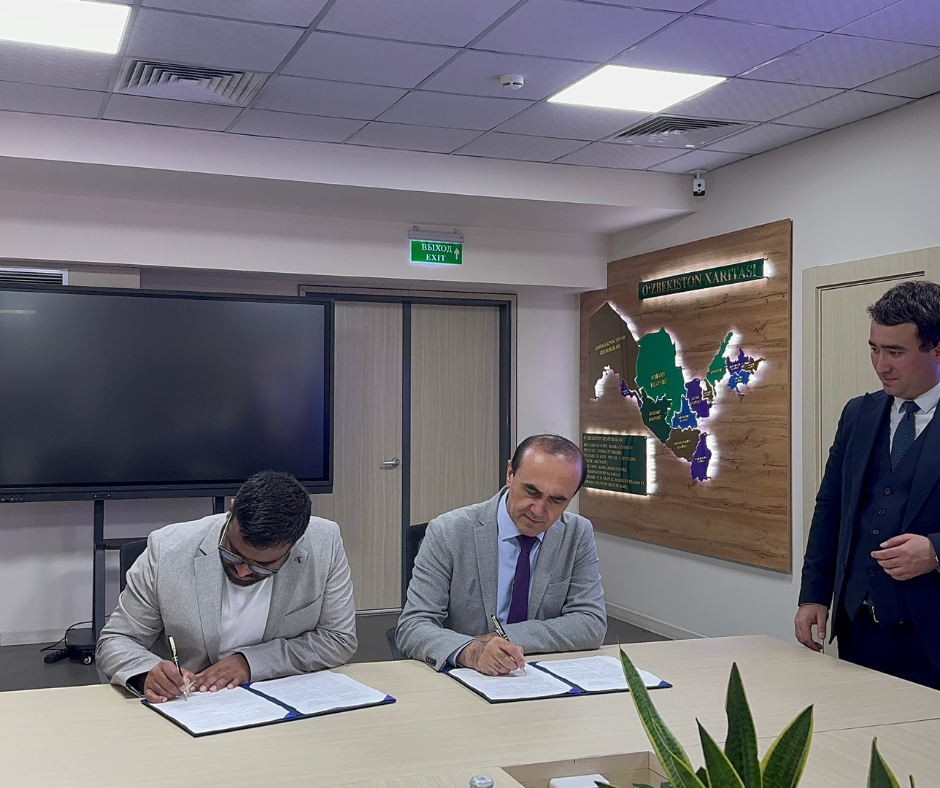- MBBS in Uzbekistan
Overview, Video playlists, Top Colleges, Life in Uzbekistan, Eligibility, Course Details
About Uzbekistan
Playlist

Tashkent Medical Academy | Exclusive Tour (Institution, Hospital, Sports & More!) | Rare Education
4:25
Bukhara State Medical Institute | Campus & Hostel Tour with Indian Students | MBBS in Uzbekistan
8:59Uzbekistan is a country that boasts a unique blend of history and modernity, situated in the heart of Central Asia. It’s known for its rich cultural heritage, influenced by the ancient Silk Road and various empires that have left their mark over the centuries.
The country’s economy is diverse, with significant contributions from agriculture, mining, and manufacturing. Uzbekistan is the world’s fifth-largest cotton exporter and also has substantial natural gas and gold reserves.
Regarding the education sector, Uzbekistan has been implementing significant reforms to enhance the quality and accessibility of education. The government aims to align its education, healthcare, and social protection systems with international standards. This commitment to improving educational outcomes is a positive sign for students considering Uzbekistan for their studies, including those interested in MBBS programs.
For Indian MBBS aspirants and their parents, it’s worth noting that Uzbekistan offers a welcoming environment for international students, with several universities providing medical courses in English. The country’s focus on educational reform and development ensures that students receive a quality education that is recognized globally.
Total Population: Uzbekistan has a population of approximately 35.6 million people, reflecting a diverse tapestry of ethnic groups and cultures.
Capital City: The capital, Tashkent, is the largest city and a major economic and cultural center in the region.
Currency: The national currency is the Uzbekistani sum (UZS).
Language: The official language is Uzbek, and while it’s the primary language for government and media, Russian is also widely used, particularly in cities and for international communication.
Popular MBBS colleges in Uzbekistan
P.S. Rare Education is the official contractor of top government medical colleges of Uzbekistan

Karshi State University

Bukhara State Medical University

Tashkent Medical Academy

Samarkand State Medical University
Life in Uzbekistan from the students' perspective
Cost of Living: Uzbekistan is known for its affordability, especially when it comes to the cost of living. Students can find that their expenses for accommodation, transportation, and food are quite reasonable compared to other countries. This economic advantage allows students to manage their finances effectively while pursuing their studies.
Weather: The climate in Uzbekistan varies greatly, ranging from arid to continental. Summers can be hot, with temperatures soaring above 40°C, while winters are cold, especially in the north. Indian students may need time to adjust to the temperature extremes, particularly the chilly winters.
Food: Uzbek cuisine offers a delightful array of flavors, heavily influenced by its agricultural produce and nomadic past. Staple dishes like plov (rice pilaf) and hearty soups are common, and Indian students might find the generous use of spices in some Uzbek dishes pleasantly familiar. The culinary scene provides an opportunity to explore new tastes while finding comfort in the spice-infused meals.
English Proficiency: While Uzbek is the official language, Russian is also widely spoken due to the country’s Soviet past. English proficiency is growing, especially among the younger population and within academic institutions, making it increasingly convenient for international students to communicate and engage with locals.
Cultural Similarities: India and Uzbekistan share historical ties, with influences seen in architecture, music, and literature. Indian students may find these cultural connections comforting, as they echo a shared heritage that spans centuries.
Education System: Uzbekistan’s education system has undergone significant reforms, aiming to align with international standards. The structure includes primary, secondary, and higher education, with several universities offering a wide range of programs in English to cater to international students.
Travel Opportunities: From the ancient Silk Road cities of Samarkand, Bukhara, and Khiva to the modern capital of Tashkent, Uzbekistan offers rich travel experiences. Students can explore UNESCO World Heritage sites, vibrant bazaars, and stunning landscapes during their stay.
Safety: Uzbekistan is generally considered safe for students. The country has made strides in ensuring public security, and the presence of tourist police in city centers contributes to a secure environment for international students.
Festivals and Celebrations: Uzbekistan celebrates a variety of festivals, such as Navruz (the Persian New Year) and Independence Day, with traditional music, dance, and feasts. These events provide a festive atmosphere where students can immerse themselves in local culture and traditions.
Social Life: Uzbekistan’s social life for students is enriched by various extracurricular activities and clubs at universities. These include sports, cultural events, and academic societies, offering students ample opportunities to socialize, learn, and grow outside the classroom.
Overview - MBBS in Uzbekistan
| Recognition Body | NMC, WHO |
| Average Course Fees | 14-15 Lakh INR |
| Living Expenses | 15-20 Thousand INR/month |
| NEET Requirement | Qualification is Mandatory |
| MCI Approved Institutions | Several |
| Course Duration | 6 years (including 1 year of internship) |
| Medium of Instruction | English |
| Eligibility | 50% in PCB Aggregate |
| Intake Season | September |
| IELTS/TOEFL | Not Required |
Fee Structures of Popular MBBS colleges in Uzbekistan
Why MBBS in Uzbekistan?
Internationally Recognized Medical Degree: Uzbekistan’s medical education provides an MD degree, equivalent to the MBBS in India and recognized by the World Health Organization (WHO), the National Medical Commission (NMC) of India, and other global medical bodies. This ensures that graduates are eligible for international medical exams like the USMLE for practice in the USA and the FMGE in India.
High-Quality Education: Modeled after global standards, Uzbekistan’s medical education system offers state-of-the-art facilities and a curriculum comparable to those in the USA, UK, and Canada. The focus on practical training and clinical exposure prepares students for global medical challenges.
Affordable Medical Education: With no hidden costs or donations, the tuition fees for MBBS in Uzbekistan are reasonable, ranging from 14 to 15 Lakh INR for the entire course. This affordability extends to living expenses, making medical education accessible to a broader range of students.
Language Proficiency: While Uzbek is the official language, English is widely used in medical universities, facilitating a smooth educational experience for international students. The presence of Indian faculty and the availability of Indian food in college hostels also help create a comfortable environment for Indian students.
Cost of Living: Uzbekistan offers a low cost of living, with monthly expenses for students averaging between 15-20 Thousand INR. This allows students to maintain a comfortable lifestyle without financial strain.
Safe and Conducive Environment: Known for its stability and safety, Uzbekistan provides a secure atmosphere for students. The country’s rich cultural heritage and warm hospitality make it an inviting place for international students.
Cultural Experience: With a history that intertwines with India’s through the Silk Road, Uzbekistan offers a cultural experience that resonates with Indian students. The country celebrates a variety of festivals and traditions, providing a colorful backdrop to the educational journey.
Global Career Opportunities: Graduates from Uzbek medical universities are equipped to pursue careers worldwide. The country’s growing healthcare sector and international partnerships offer ample opportunities for medical professionals.
Eligibility for admission for Indian (international) students:
The eligibility criteria for Indian students to pursue MBBS in Uzbekistan are as follows:
Age: Candidates must be at least 17 years old on or before 31st December of the year of admission.
Educational Qualification: Students must have completed their 10+2 (or equivalent) with Physics, Chemistry, and Biology (PCB) as subjects.
Minimum Marks: General category candidates must have at least 50% marks in PCB, while reserved category candidates (like SC/ST/OBC) need 40% marks in PCB.
NEET: Candidates must have qualified the NEET exam if they wish to practice in India after completing their MBBS.
Admission Procedures
The Admission Procedure in the Philippines is quite easy and simple. To take admission in medical schools, you have to fulfill certain eligibility criteria then you can proceed with the process. You should precisely follow the steps to avoid any hassle at the time of admission. Contact Us for taking admission to any of the top medical colleges in the Philippines. Follow some simple steps to get admission:
Step 1: Fill out the Application Form with us
Step 2: Candidates are required to submit their scanned documents to Rare Education. Before submitting the documents cross-verify them.
Step 3: It takes about one or two weeks to review your application and issue a Confirmation Letter.
Step 4: Deposit the fees in the University’s Bank Account.
Step 5: Finally visit the Embassy of the Philippines for visa Application and other procedures. There are 4 Honorary Consulate Generals of the Philippines namely – New Delhi, Mumbai, Kolkata, and Chennai.
Syllabus & Tenure of Education:
The duration of the General Medicine (MBBS) course in Uzbekistan is 6 years, which includes 5 years of academic learning and 1 year of internship.
The detailed syllabus for the General Medicine (MBBS) undergraduate course in Uzbekistan is structured to provide a comprehensive medical education. Here’s a summary of the syllabus:
Pre-Clinical Course (Years 1-2):
Anatomy: Study of the human body structure.
Physiology: Understanding the functions of organs and systems.
Biochemistry: Chemical processes within and related to living organisms.
Biophysics: Application of physics principles to biological processes.
Histology: Examination of tissues under the microscope.
Embryology: Development of an embryo from the fertilization of the ovum.
Para-Clinical Course (Years 3-4):
Pathology: Study of diseases, their causes, and effects.
Microbiology: Study of microorganisms and their impact on health.
Pharmacology: Drugs and their effects on the body.
Forensic Medicine: Medical aspects of law.
Community Medicine: Health care issues affecting communities.
Clinical Course (Years 5-6):
Internal Medicine: Diagnosis and treatment of internal organ diseases.
Surgery: Surgical techniques and patient management.
Pediatrics: Health and diseases in children.
Obstetrics and Gynecology: Reproductive health and childbirth.
Psychiatry: Mental health and disorders.
Dermatology: Skin conditions and treatments.
Ophthalmology: Eye diseases and treatment.
ENT (Ear, Nose, Throat): Diseases of the ear, nose, and throat.
Radiology: Imaging techniques for diagnosis.
Anesthesiology: Pain relief and patient care during surgery.
Internship (Year 6):
Practical experience in hospitals across various departments.
This syllabus is designed to ensure that students gain a deep understanding of medical science, both in theory and practice, preparing them for a successful career in medicine
Note that this syllabus is at par with NMC’s Schedule I, which is a necessity for the degree to be valid in India according to FMGL Regulations 2021
FAQ
The approximate 6 lakh to 18 lakh course fees for the 6-year MBBS program. The total cost of 6 years ranges from ₹27–33 lakhs, including all the expanses from tuition, hostel, and mess fees, first year package etc. This is 60–70% cheaper than Indian private medical colleges. Rare Education provides a fee breakup during counseling.
Yes. NEET qualification is mandatory for Indian students (to practice in India). No additional entrance exams are conducted by QSU.
As official contractor and admission partner for Indian students, Rare Education handles:
- Admission process: Documentation, visa, and flight assistance.
- Accommodation: Safe, Indian-student-friendly hostels with Wi-Fi and 24/7 security.
- Indian Mess: North/South Indian meals prepared by certified chefs.
Post-admission support: FMGE/NExT coaching, Hostel, Indian Mess, Mentorship and guidance, Legal and official activities, and emergency assistance.
Absolutely! Rare Education runs dedicated Indian mess facilities with menus including roti, dal, paneer, rice, idli, and dosa. Special dietary needs (e.g., Jain, vegan) are accommodated.
Uzbekistan ranks among world’s safest countries. Hostels have CCTV surveillance, and Rare Education’s Uzbekistan-based team provides 24/7 support for emergencies.
MBBS graduates from Uzbekistan can:
- Clear FMGE/NExT to practice in India.
- Pursue PG in Uzbekistan, Germany, or South Korea (via universities partnerships).
Apply for USMLE/PLAB with WHO-recognized degrees.
Yes! Our team of Indian doctors and alumni offers:
- Academic mentorship: Guidance on exams, research, and clinical rotations.
- FMGE/NExT coaching: Online modules and test series.
Career counseling: PG options, residency applications, and job placements.
Summer (June–Aug): Hot and dry (up to 40°C).
Winter (Dec–Feb): Cold (down to -10°C) but minimal snow.
Hostels and classrooms are centrally heated/cooled.
Join our free webinars with QSU alumni and medical mentors, or message us on WhatsApp for instant support!






